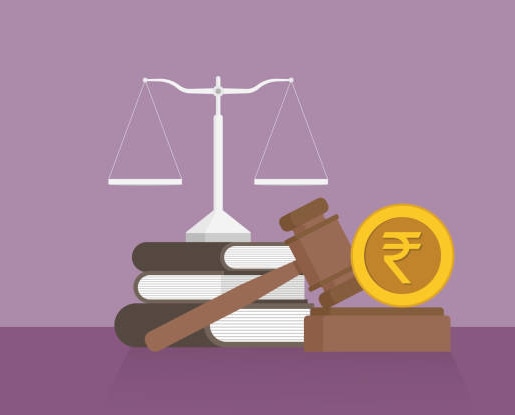IS THERE CORRUPTION AROUND YOU? LODGE A COMPLAINT UNDER PIDPI. YOUR IDENTITY SHALL BE KEPT CONFIDENTIAL in any PIDPI complaint legal help.
IS THERE CORRUPTION AROUND YOU? LODGE A COMPLAINT UNDER PIDPI. YOUR IDENTITY SHALL BE KEPT CONFIDENTIAL.
🚨 Bribery in offices. Favouritism in tenders. Nepotism in government postings. Ghost beneficiaries. Misuse of funds.
If you’ve witnessed such rot, it’s time to speak up — not with fear, but with protection on your side.
Welcome to the Public Interest Disclosure and Protection of Informers (PIDPI) mechanism — your legal shield to blow the whistle against corruption, safely and confidentially.



What is PIDPI?
The PIDPI resolution, brought in by the Government of India and managed through the Central Vigilance Commission (CVC), provides a legal route for whistleblowers to report corrupt practices in public authorities without revealing their identity.
This mechanism is designed for honest insiders or vigilant citizens who wish to expose corruption, mismanagement, abuse of power, or misuse of public office — without the fear of retaliation.
Who Can You Report?
You can lodge complaints against:
- Central Government employees
- Employees of PSUs, banks, insurance companies
- Employees working under ministries, departments, and public sector authorities
Note: For state government officials, a separate mechanism applies. But fear not — we can guide you there too.
Why PIDPI is a Game-Changer
✅ Confidentiality Ensured – Your name is kept under strict wraps. It is not disclosed to the accused or their organization.
✅ Legal Protection – Whistleblowers are protected from victimization or retribution.
✅ Empowered Oversight – The complaint goes to the CVC, which forwards it to the concerned authority only after masking your identity.
Understanding and Filing a PIDPI Complaint: Your Legal Guide to Reporting Corruption in India
Introduction
Corruption is a silent killer of justice, equality, and development. Whether it’s bribery in offices, favouritism in public sector recruitment, or the blatant misuse of government resources, corruption erodes public trust and stalls progress. But what if you could do something about it without putting yourself in harm’s way? That’s where a PIDPI complaint comes in.
In this in-depth guide, we’ll explain what a PIDPI complaint is, who can file it, how it works, and how legal support—especially from an expert whistleblower lawyer in Chennai—can make a significant difference. If you’ve been wondering how to report corruption anonymously and safely, this article is for you.
What is a PIDPI Complaint?
PIDPI stands for Public Interest Disclosure and Protection of Informers. It’s a resolution passed by the Government of India and monitored by the Central Vigilance Commission (CVC). A PIDPI complaint allows you to report corrupt practices in the Central Government or public sector undertakings while ensuring your identity is kept confidential.
Unlike other types of complaints that could potentially expose the whistleblower to retaliation, a PIDPI complaint guarantees protection under law. It is one of the strongest tools for promoting transparency and accountability in governance.
Who Can File a PIDPI Complaint?
Any citizen of India can file a PIDPI complaint. Whether you’re an insider working in a government department or a vigilant citizen who has observed misuse of authority, you can blow the whistle legally.
You can file a complaint against:
- Employees of the Central Government
- Officers in Public Sector Undertakings (PSUs)
- Staff in nationalised banks, insurance companies, and other central government institutions
If your concern is against State Government employees, then a different route such as the State Vigilance Commission or Anti-Corruption Bureau will apply.
What Makes a Strong PIDPI Complaint?
Here’s what a robust PIDPI complaint should include:
- Clear description of the corrupt act or misuse of power
- Full names and designations of the officials involved
- The department or PSU concerned
- Dates and specific incidents (if possible)
- Any supporting documents or evidence
- Your full name and contact address (mandatory but kept confidential)
It’s always advisable to consult a lawyer for CVC complaint India to ensure that your complaint is drafted clearly, legally, and persuasively.
How to File a PIDPI Complaint in India
This process is surprisingly simple, yet precise. Here’s the correct method:
- Draft your complaint on plain paper. Ensure that it is signed and includes your postal address.
- Clearly mark the envelope: “PIDPI Complaint / Whistleblower Complaint”
- Send the sealed envelope by post only (email or fax not accepted) to:
The Secretary, Central Vigilance Commission
Satarkta Bhawan, GPO Complex, INA
New Delhi – 110023
Using this method ensures the envelope is handled through the CVC’s PIDPI cell, and your identity remains protected.
Why You Should Consult a Whistleblower Lawyer in Chennai
Filing a corruption complaint may seem straightforward, but legal nuances can complicate things. A whistleblower lawyer in Chennai can:
- Verify if your complaint qualifies under PIDPI
- Help in collecting admissible evidence
- Draft the complaint in legally sound language
- Advise you on steps if there’s retaliation
- Represent you if the matter escalates to a higher court or inquiry
Our team at Chennai Law Forum specialises in such matters and provides confidential legal advice for whistleblowers.
Common Mistakes to Avoid While Filing a PIDPI Complaint
- Sending anonymous complaints – These are rejected outright.
- Submitting complaints by email or fax – Only postal submissions are valid.
- Not including your full name and postal address – Mandatory for verification, even though your identity will be protected.
- Targeting private individuals or entities – PIDPI applies only to public servants under Central Government.
- Using the complaint to settle personal scores – The focus must be on public interest, not private grievances.
How Long Does It Take to Get a Response?
Once your complaint is received, the CVC examines whether it falls within the scope of PIDPI. If accepted, the Commission may:
- Conduct a preliminary inquiry
- Forward the matter to the appropriate vigilance authority
- Seek more information from you (without compromising your identity)
While there is no strict timeline, most accepted cases see movement within 60–90 days.
What Legal Protection Do You Have as a Whistleblower?
Under PIDPI, any form of victimisation, harassment, or discrimination against the complainant is prohibited. If you’re targeted for lodging a complaint, you can approach the CVC, which will intervene to ensure your safety and job security.
This makes PIDPI complaint legal help not just useful—but essential. Having a legal team ensures you don’t face retaliation in silence.
Why PIDPI is a Powerful Tool for the Common Citizen
India’s fight against corruption depends on courageous individuals. PIDPI bridges the gap between public duty and personal risk, empowering citizens to:
- Safely report scams
- Challenge bureaucratic misuse
- Flag red tape and bribery
In an age where people often feel powerless against the system, a well-filed PIDPI complaint backed by strong legal support can set a precedent—and possibly, save public money and public trust.
Real-Life Example (Hypothetical Case Study)
An accounts officer in a Chennai-based PSU discovered irregularities in fund allocations—millions being routed to shell companies. Fearing retaliation, he approached Chennai Law Forum. We helped him file a PIDPI complaint with the CVC, ensured his identity was masked, and followed up with vigilance authorities. Within months, the scam was exposed, and action was taken against the culprits—all while the whistleblower remained protected.
This is the power of the law when wielded the right way.
How to File a PIDPI Complaint?
1. Write a complaint clearly stating:
- The nature of the corrupt act
- The names of the involved officials
- Supporting documents (if available)
- Your name and full address (mandatory for PIDPI – but kept confidential)
2. Send it in a sealed envelope marked boldly with:
“Complaint under the Public Interest Disclosure”
3. Post it to:
The Secretary, Central Vigilance Commission
Satarkta Bhawan, GPO Complex, INA,
New Delhi – 110023
(Note: Email or fax complaints are not accepted under PIDPI. Snail mail still reigns supreme for whistleblowers.)
Things to Avoid
🚫 Don’t make anonymous complaints — they won’t be entertained under PIDPI.
🚫 Don’t discuss your complaint with colleagues or friends — confidentiality is key.
🚫 Don’t misuse this law to settle personal scores — it’s for the public interest, not vendettas.
How We at Chennai Law Forum Can Help
At Chennai Law Forum, we stand shoulder to shoulder with whistleblowers. Whether you’re a bureaucrat, PSU staffer, or a citizen with a conscience, we help you:
- Draft your PIDPI complaint properly
- Protect your identity
- Navigate any legal fallout or retaliation attempts
- Pursue public interest litigation, if necessary
Your courage is sacred. Your voice deserves legal backing. And we’re here to ensure it gets heard — safely.
✊ Be the Change
Corruption flourishes when good people stay silent. But today, you have the law on your side. Blow the whistle — and blow away the rot.
🛡️ PIDPI is your shield. Use it wisely. Use it bravely.
Conclusion: Speak Up, Safely and Legally
Corruption thrives in silence. But the law has your back—if you use it right.
A PIDPI complaint is not just a letter; it’s a legal instrument of change. With expert help from a corruption complaint lawyer in Chennai, your voice can shake the system, without risking your safety.
Need Help? Reach Out Confidentially
At Chennai Law Forum, we provide end-to-end support in drafting, reviewing, and legally processing your PIDPI complaint.
📞 Need help filing a PIDPI complaint or want to know if your case qualifies?
Email us at: sarav@lawyerchennai.com
WhatsApp us at: +91-9994287060
Chennai Law Forum – Because justice needs a voice. Sometimes, that voice could be yours.
#CorruptionComplaint #Whistleblower #PIDPI #CVC #ReportCorruption #ConfidentialComplaint
Visit Click Here for more information
#CorruptionComplaint #Whistleblower #PIDPI #CVC #ReportCorruption #ConfidentialComplaint
Know Your Rights: PIDPI Whistleblower FAQs
FAQ 1: What exactly qualifies as a PIDPI complaint?
Answer: A PIDPI complaint must involve allegations of corruption, misuse of office, abuse of power, or criminal misconduct by a Central Government employee or public sector officer. It should relate to public interest, not private disputes or service matters. Attach proof if available — even rough evidence helps strengthen the case.
FAQ 2: Will my identity be revealed to anyone if I file a PIDPI complaint?
Answer: Nope, not even remotely. Your identity remains strictly confidential. The CVC takes this very seriously. The complaint is masked before being sent to the investigating agency, and any breach of identity protection is treated as a violation of official procedure.
FAQ 3: Can I send a PIDPI complaint via email or WhatsApp?
Answer: Short answer — no. PIDPI complaints must be sent by post in a sealed envelope to the CVC’s office in New Delhi. Electronic modes like email, fax, or WhatsApp are not accepted under this framework. Old-school snail mail still rules here, with good reason.
FAQ 4: What if I file a false complaint? Are there consequences?
Answer: Absolutely. PIDPI is a tool for truthful whistleblowing, not character assassination. If a complaint is found to be frivolous, malicious, or false, you could face disciplinary or legal action. So — use this law responsibly, not vengefully.
FAQ 5: I work in a State Government office. Can I still file under PIDPI?
Answer: Unfortunately, PIDPI applies only to Central Government bodies and PSU employees. For State Government corruption, you’ll need to file a complaint with the State Vigilance Commission or Anti-Corruption Bureau. But don’t worry — we can guide you through that too.
FAQ 6: Can Chennai Law Forum help me draft or review my PIDPI complaint?
Answer: Absolutely, yes. We assist in drafting clear, focused complaints, ensuring that your case fits within the legal framework. Plus, we advise on evidence, legal rights, and next steps if the complaint leads to inquiry or backlash. Your fight becomes our mission.
Read More
- Navigating Corporate Governance Regulations: A Legal Perspective
- Shareholder Rights in Public vs. Private Companies: What You Need to Know
- Restructuring Your Business: Key Legal Considerations to Keep in Mind
- Business Formation 101: Legal Steps to Establish Your New Venture
- The Role of Due Diligence in Successful M&A Transactions

